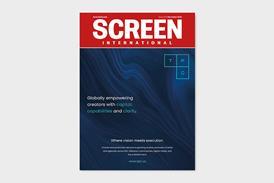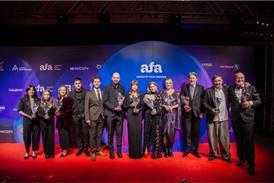
Annemarie Jacir’s historical drama Palestine 36 won top prize at the Tokyo International Film Festival (TIFF) today (November 5).
Taking place during Palestine’s British rule of 1936, the film revolves around a real-life uprising by Palestinian Arabs. It stars Hiam Abbass, Saleh Bakri, Robert Aramayo and Jeremy Irons, was produced by Philistine Films and is repped internationally by France’s Lucky Number.
It has been selected as Palestine’s entry to the international feature film Oscar award for 2026.
Presenting the award, jury president Carlo Chartrian said that “we were moved by the emotional aspect of this film, portraying mostly unknown historical facts, and were enchanted by the representation of a beautiful land that now looks like an open wound.”
Tokyo’s special jury prize was awarded to Cambodian documentary We Are The Fruits Of The Forest, directed by Rithy Panh, which had its world premiere at the festival. It follows the indigenous Bunong people over a period of years. Panh won the Silver Bear in 2022 with Everything Will Be OK.
The award for best director went to two films: co-directors Alessio Rigo de Righi and Matteo Zoppis for Heads Or Tails?, the western from Italy and the US that stars John C. Reilly as Buffalo Bill; and Zhang Lu for Mothertongue, a Chinese film about a failed actress who returns to her rural hometown to discover she has forgotten how to speak the regional dialect.
Acting prizes
The award for best actress was also split, albeit between two actresses in the same film: Momoko Fukuchi and Naomi Kawase for Echoes Of Motherhood by Ryutaro Nakagawa. Kawase, who plays the titular mother, is better known as one of Japan’s top directors. Best actor went to Wang Chuanjun of Mothertongue, the only film to walk away with multiple prizes.
The artistic contribution award went to Teona Strugar Mitevska’s Mother, about a pivotal week in the life of Mother Teresa, played by Noomi Rapace.
The audience award went to Japanese film Blonde, directed by Yuichiro Sakashita, a satire of the idiosyncratic rules that govern high school life in Japan.
Best film of the Asian Future section was awarded to Halo, a South Korean film from director Roh Young-wan about the harsh realities of the gig economy and anxiety about family life and North Korean missile attacks.
TIFF’s newest section, the Asian Students’ Film Conference, has two awards: best film, which went to Floating by Lee Ji-yun of the Korean Academy of Film Arts; and the jury prize, which was shared by Forever and a Day (Chen Li-hsuan, National Taiwan University of Arts) and Reviving the Engine (Jung Hye-in, Korean Academy of Film Arts).
This year’s ethical film award, the festival’s third, was given to the Brazilian film White House. Directed by Luciano Vidigal, it follows a young man who decides to make the best of the short time he has with his terminally ill grandmother.
As previously announced, the festival’s Kurosawa Akira Award was given to directors Chloe Zhao for TIFF closing film Hamnet and Lee Sang-il, director of box office hit Kokuho. Two lifetime achievement awards were presented to veteran director Yoji Yamada and actress Sayuri Yoshinaga, who starred in opening film Climbing For Life.









![[Clockwise from top left]: 'The Voice Of Hind Rajab', 'A House Of Dynamite', 'Jay Kelly', 'After The Hunt', 'The Smashing Machine'](https://d1nslcd7m2225b.cloudfront.net/Pictures/274x183/1/7/0/1459170_veniceawards_837515.jpg)















No comments yet